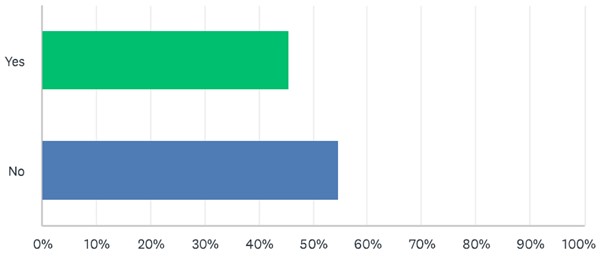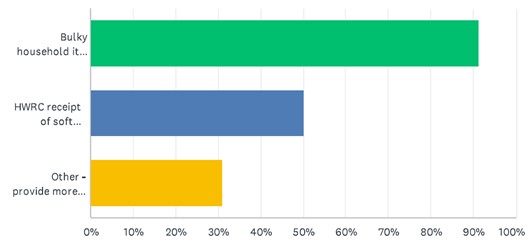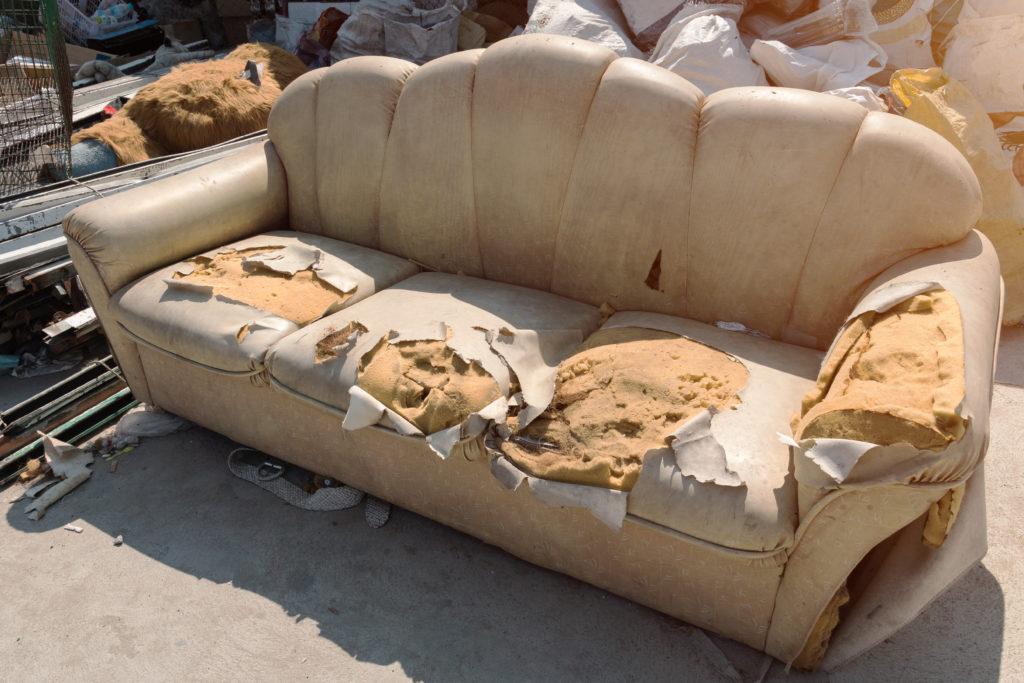After an investigation found large levels of persistent organic pollutants (POPs) in seating textiles and foams, the Agency warned councils in September that they must incinerate all upholstered waste domestic seating, such as sofas or armchairs (see letsrecycle.com story). The guidance also states this stream must not be mixed with other non-POPs wastes.
The Agency says it will undertake an assessment of compliance “across the sector” from January 2023, just three months’ time.
LARAC, which represents local authority recycling officers, surveyed its 306 members and found that more than half (55%) of those who responded said they could not comply in time.

LARAC said respondents suggested the cost of complying could range from “several hundred thousand to over a million pounds” per authority.
Respondents cited pressures including the cost of modifying transfer stations or depots to keep POPs waste from bulky item collections separate, extra skips needing to be placed at household waste recycling centres (HWRCs), and particulate control in compaction activities, LARAC said.
Not a single respondent foresaw that the requirements would lead to any cost-savings.
Landfill
The survey found the ban on sending POPs items to landfill from January 2023 will affect one third of the LARAC members who responded. More than half of the respondents (53%) currently send POPs waste to EfW plants mixed with other wastes, LARAC found, while just less than a third (31%) send the items to landfill mixed with other wastes.
LARAC also said many councils with energy from waste (EfW) contracts sent items to landfill when their EfW facility shut down for maintenance or planned closures.
Sudden
John Coates, LARAC’s head of external affairs, said the Environment Agency had asserted that the guidance had been the “legal situation” since 2016. Mr Coates questioned why the Agency had not challenged any of the current practices carried out by councils and their contractors during the “many thousands of inspections” over the last six years.

“LARAC wants to know why it has taken six years to suddenly decide that waste sofas and settees present such an urgent danger to human health,” he said
“The poor communication on this issue from the EA could mean that some services will stop, as many landfill operators are saying they will not accept POPs waste in the near future to protect against any breach of their environmental permit.”
Mr Coates called on the Agency to initiate “urgent discussions” to ensure the disruption to councils and residents was minimal and that services can continue, “whilst a solution can be found.”
Bulky waste
LARAC’s survey found that councils believe the most significant impact of the guidance will be on bulky waste collections, where the requirement to keep POPs items separate will cause “major disruption” to collection systems and “engagement with residents”.

More than a quarter of councils said the only way to comply would be to operate two collections, LARAC found: one round or vehicle for non-POPs items and a second for POPs items.
The same would be true for fly-tips, “where the chance of ripped or damaged soft furnishings containing POPs will be higher, meaning the whole fly tip will need to be treated as POPs material,” LARAC said.
Mr Coates said: “Unlike bulky collections where what is to be collected can be known in advance because the resident books a collection, fly-tips can contain any items and the presence of one ripped cushion will cause the entire fly-tip to be classified as POPs under the published guidance.
“This will increase costs as all fly tipped items will have to go for high temperature incineration, not just the ripped cushion. This does not seem a common-sense approach in these times of strained council finances.”
Concerns
LARAC is not the only local authority organisation to express concerns about the Environment Agency’s guidance. The National Association of Waste Disposal Officers, a network for senior waste managers at disposal authorities, has similar fears about the timescale in which to implement the guidance (see letsrecycle.com story).
The Association of Directors of Environment, Economy, Planning and Transport, the organisation representing the local authority ‘place directors’ responsible for providing day-to-day services, also said it had “serious concerns” (see letsrecycle.com story).
And, in the private sector, the ESA wrote an open letter to the Agency with concerns that there are currently “very few” EfW facilities with the dust abatement techniques required (see letsrecycle.com story).










Subscribe for free